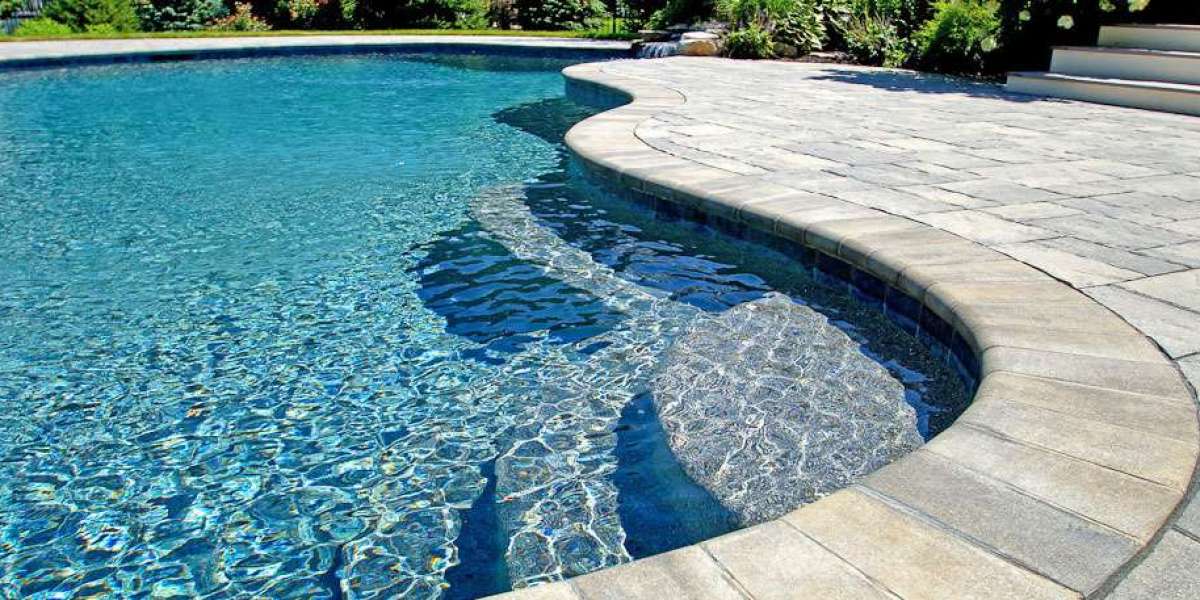Transforming your backyard into a personal oasis often revolves around creating the perfect pool. But have you considered the impact of the pool finish on your overall experience? Pebble pool finishes offer a blend of aesthetic appeal, durability, and comfort, making them a popular choice among homeowners. In this article, we explore the numerous benefits of choosing a pebble pool finish and why it might be the perfect option for your backyard oasis.
Introduction to Pebble Pool Finishes
When it comes to designing your backyard pool, every detail matters. From the shape and size to the color and finish, each choice contributes to the overall ambiance and functionality. Among these decisions, the type of pool finish is crucial. Not only does it affect the look and feel of your pool, but it also impacts the maintenance and longevity of your investment.
Pebble pool finishes have gained popularity for their natural beauty and durability. Unlike traditional plaster finishes, pebble finishes offer a unique texture and a longer lifespan. But what exactly are pebble pool finishes, and why are they becoming the go-to choice for homeowners?
What is a Pebble Pool Finish?
A pebble pool finish is a type of pool surface made from small, smooth stones embedded in cement. This finish creates a textured, slip-resistant surface that is both durable and aesthetically pleasing. The pebbles used in these finishes come in various sizes and colors, allowing for a high level of customization to match your desired pool aesthetic.
Aesthetic Appeal: Creating a Natural Look
Imagine walking on a beach, the feel of smooth pebbles underfoot, the way they glisten under the sun. A pebble pool finish replicates this experience, giving your pool a natural, lagoon-like appearance. The varied colors and textures of the pebbles can mimic the natural tones found in riverbeds and oceans, making your backyard oasis feel like a piece of paradise.
Moreover, pebble finishes allow for creative freedom. Whether you prefer a monochromatic look or a mix of colors to create a mosaic effect, the choice is yours. This level of personalization means your pool can be as unique as you are.
Durability: Long-Lasting and Low Maintenance
One of the standout benefits of pebble pool finishes is their durability. Unlike plaster, which can crack and stain over time, pebble finishes are resistant to chemical imbalances, UV rays, and algae growth. This durability means fewer repairs and less frequent resurfacing, saving you time and money in the long run.
The stones used in pebble finishes are naturally resilient and can withstand the constant exposure to water and pool chemicals. As a result, a well-maintained pebble pool finish can last for decades, far outlasting other types of pool surfaces.
Comfort Underfoot: A Pleasant Swimming Experience
While the durability and aesthetic appeal of pebble finishes are important, the comfort they provide should not be overlooked. The small, smooth stones are gentle on the feet, offering a non-slip surface that is comfortable for both children and adults. Unlike rougher surfaces, which can cause scrapes and discomfort, a pebble finish provides a pleasant experience, whether you are swimming laps or simply lounging by the pool.
Customization Options: A Unique Touch
Pebble finishes offer an unparalleled level of customization. Homeowners can choose from a variety of pebble sizes, shapes, and colors to create a finish that complements their personal style and backyard design. Whether you want a sleek, modern look or a more natural, rustic feel, pebble finishes can be tailored to suit your preferences.
Additionally, the reflective properties of the pebbles can enhance the water's appearance, creating a sparkling, inviting environment. This customization extends beyond aesthetics; the texture of the finish can also be adjusted to provide a softer or more textured feel, depending on your comfort preferences.
Environmental Benefits of Pebble Finishes
In today's world, making environmentally conscious choices is more important than ever. Pebble pool finishes are an eco-friendly option, as they are made from natural materials that are less harmful to the environment compared to synthetic pool finishes. Additionally, the durability of pebble finishes means fewer resources are required for repairs and resurfacing, reducing the overall environmental footprint of your pool.
Cost Considerations: Value for Money
While pebble finishes may have a higher initial cost compared to traditional plaster finishes, their longevity and low maintenance requirements often make them a more cost-effective choice in the long run. The reduced need for frequent repairs and resurfacing means that, over time, homeowners can save money on maintenance expenses.
Furthermore, the enhanced durability of pebble finishes adds value to your pool investment, as a well-maintained pool can increase the resale value of your home. When considering the overall value for money, pebble pool finishes are a wise investment for homeowners looking to create a lasting backyard oasis.
Installation Process: What to Expect
Installing a pebble pool finish involves several steps, each requiring precision and expertise. The process typically starts with preparing the pool surface, ensuring it is clean and free of debris. Next, a bonding agent is applied to help the pebble mixture adhere to the surface. The pebble mixture is then applied, either by hand or with a specialized spray machine, and smoothed out to create an even layer.
After the application, the surface is left to cure, during which time the pool should not be used. Once the curing process is complete, the pool is filled with water, and any final adjustments are made to ensure the finish is perfect. It's important to work with a professional pool contractor to ensure the installation is done correctly, as improper installation can lead to issues down the line.
Comparing Pebble Finishes with Other Options
When it comes to choosing a pool finish, there are several options available, including plaster, tile, and fiberglass. Each option has its own set of pros and cons. Plaster finishes, for example, are less expensive but may require more frequent maintenance and are prone to staining and cracking. Tile finishes offer a sleek look but can be costly and time-consuming to install.
Pebble finishes, on the other hand, strike a balance between durability, aesthetic appeal, and cost. They offer a unique texture that is slip-resistant and comfortable underfoot, making them a popular choice among homeowners.
Maintenance Tips for Pebble Pool Finishes
Maintaining a pebble pool finish is relatively straightforward. Regular cleaning with a pool brush and ensuring proper chemical balance are essential to keeping the surface looking its best. It's also important to address any minor repairs promptly to prevent them from becoming more significant issues.
Occasionally, a professional cleaning may be necessary to remove any stubborn stains or buildup. By following these simple maintenance tips, homeowners can ensure their pebble pool finish remains beautiful and functional for years to come.
How to Choose the Right Pebble Finish for Your Pool
Choosing the right pebble finish involves considering several factors, including the size of the pebbles, the color palette, and the desired texture. Smaller pebbles tend to create a smoother finish, while larger pebbles offer a more textured look. The color of the pebbles can also affect the overall appearance of the pool water, with lighter colors creating a brighter, more reflective surface and darker colors adding depth and drama.
It's also important to consider how the pebble finish will complement the rest of your backyard design. Consulting with a professional pool designer can help you make the best choice for your specific needs and preferences.
Common Myths About Pebble Pool Finishes
Despite their growing popularity, several myths about pebble pool finishes persist. One common misconception is that pebble finishes are rough and uncomfortable underfoot. However, as we've discussed, the pebbles are smooth and provide a comfortable, slip-resistant surface.
Another myth is that pebble finishes are more challenging to maintain than other options. In reality, pebble finishes require less maintenance due to their durability and resistance to staining and algae growth.
Real-life Examples and Case Studies
Many homeowners have chosen pebble finishes for their pools and have shared their positive experiences. For example, a family in Florida opted for a pebble finish to match their tropical backyard theme. They were thrilled with the natural look and feel and noted a significant reduction in maintenance efforts compared to their previous plaster pool.
Another homeowner in California chose a dark pebble finish to create a more dramatic, modern look for their pool. They were impressed with the finish's durability and the way it enhanced the overall aesthetic of their backyard.
These real-life examples demonstrate the versatility and benefits of pebble pool finishes, making them an excellent choice for various styles and preferences.
Conclusion
Choosing a pool finish is a significant decision that impacts the look, feel, and longevity of your backyard oasis. Pebble pool finishes offer a range of benefits, from aesthetic appeal and durability to comfort and environmental friendliness. By investing in a pebble finish, you can create a beautiful, low-maintenance pool that will provide years of enjoyment for you and your family.








